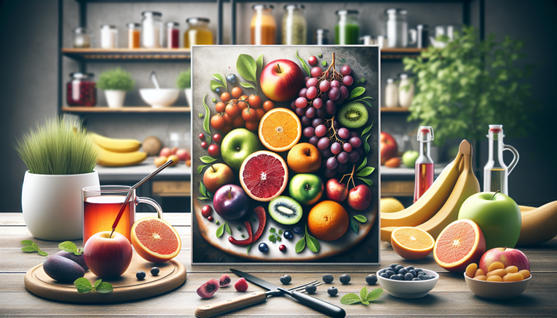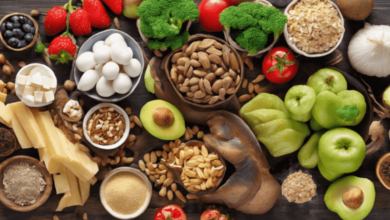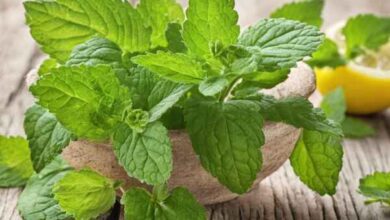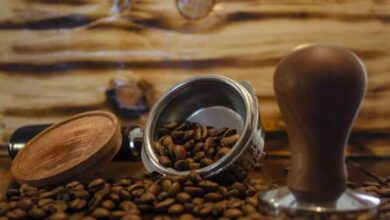Top 7 Fruits Good for Kidney Health and How to Use Them for Detox

Fruits play a crucial role in maintaining kidney health, thanks to their antioxidant, anti-inflammatory, and nutrient-rich properties. For those managing kidney conditions, understanding which fruits are beneficial or potentially harmful is key because certain fruits can help in a kidney-friendly diet, while others high in potassium may be harmful due to their potential to cause potassium buildup, which is particularly concerning for those with kidney disease or those on certain kidney disease medications [1].
For a kidney detox or to maintain kidney health, incorporating low-potassium fruits such as apples, berries, and grapes into your diet can be advantageous. On the other hand, high-potassium fruits like bananas, oranges, and avocados should be limited or avoided to prevent complications associated with kidney disease. This article will explore the top fruits good for kidney health, how to use them for detox, and tips for incorporating kidney-friendly foods into your everyday diet, ensuring a balance that supports optimal kidney function [1].
Top 7 Fruits Good for Kidney Health and How to Use Them for Detox
1. Cranberries

Cranberries are celebrated for their low potassium levels and high vitamin C content, making them an excellent choice for maintaining kidney health [3]. They are particularly known for their ability to prevent urinary tract infections (UTIs), which are common among individuals with kidney disease [3]. To incorporate cranberries into your diet, consider the following points:
- Selection of Cranberry Products: Opt for cranberry juice that is low in potassium to enjoy the benefits without exacerbating kidney conditions [3]. Always check the label to ensure it contains a high amount of real fruit juice [8].
- Potential Health Benefits: Cranberries contain bioactive compounds like anthocyanins, flavonols, and proanthocyanidins, which may reduce the severity of chronic renal failure (CRF) and other adverse effects [4]. Moreover, these compounds help prevent bacteria from adhering to the urinary tract, reducing the risk of UTIs [5][6].
- Precautions: While beneficial, cranberries should be consumed in moderation. Excessive intake can lead to gastrointestinal upset or increase the risk of kidney stones due to their oxalate content [4][5]. Additionally, cranberry products might interact with certain medications, such as warfarin and atorvastatin, so it’s advisable to consult with a healthcare provider before starting any new supplement [5].
By integrating cranberries into your diet thoughtfully, you can leverage their health benefits while managing your kidney health effectively.
Read also: 15 Best Foods to Lower High Blood Pressure Naturally
2. Lemons

Lemons are a standout choice for supporting kidney health due to their low potassium content and high levels of citric acid, which are beneficial for those managing kidney conditions [10]. Here’s how lemons can be integrated into a kidney-friendly diet:
- Prevention of Kidney Stones: Lemons are rich in citric acid, which helps prevent the formation of kidney stones by increasing urine volume and pH, making the environment less favorable for stone formation [10][11].
- Nutritional Benefits: High in vitamin C, lemons boost the immune system and aid in collagen production, which is beneficial for skin health [9]. Additionally, they can enhance metabolic functions and help manage insulin resistance [9].
- Dietary Uses: Lemon juice is an excellent salt substitute, adding flavor without sodium, which is crucial for maintaining kidney health [10]. It can also be used in various recipes to enhance taste without compromising health.
- Citrate Therapy: Regular consumption of lemon juice increases citrate levels in urine, which helps in preventing and even dissolving kidney stones [11]. Studies have shown that lemon juice can be as effective as potassium citrate in treating urinary calcium stones [11].
- Detoxification Properties: Lemon juice assists the kidneys in filtering and flushing out toxins from the blood, supporting the body’s natural detoxification processes [11].
Incorporating lemon into your diet can be as simple as adding fresh lemon juice to water, which not only increases your citrate intake but also offers additional health benefits like improving digestion, boosting energy levels, and supporting the immune system [12]. For those concerned about potassium levels, lemons are a safe choice, especially for individuals on hemodialysis or with chronic kidney disease, as they contain significantly lower potassium compared to other citrus fruits [13].
| Citrus Fruit | Calories | Potassium, mg | Potassium Level |
| Lemon Juice (fresh) (1 oz) | 7 | 31 | Low |
This table highlights the low potassium content of lemon juice, making it an ideal component of a kidney-friendly diet [13].
Read also: 20 Foods to Avoid With High Blood Pressure
3. Blueberries

Blueberries are celebrated for their nutritional benefits, especially when it comes to kidney health. They are a rich source of fiber, vitamin C, vitamin K, and powerful antioxidants, which are essential for overall health, boosting the immune system, and particularly beneficial for the kidneys [15].
Nutritional Profile
- Calories and Fiber: A half-cup serving of blueberries contains only 40 calories and provides about 2 grams of fiber, making it a low-calorie, high-fiber choice [15].
- Potassium and Phosphorus Content: This portion also contains approximately 77 milligrams of potassium, a mineral that can help lower blood pressure, and 9 milligrams of phosphorus. Notably, the phosphorus in blueberries is not well absorbed by the body, which is advantageous for kidney health. [17].
Health Benefits
- Kidney Disease Management: Blueberries are low in potassium, which is crucial for those managing kidney conditions such as chronic kidney disease (CKD) and kidney stones. They are recommended for various kidney treatments including CKD/Transplant, Hemodialysis, and Peritoneal Dialysis [15].
- Oxidative Stress Reduction: Studies have shown that blueberries can attenuate TLR4 expression and reduce oxidative stress in the kidneys, which protects against chronic kidney disease in metabolic syndrome (MetS) animals [16].
- Inflammation and Glucose Metabolism: Additionally, they help in reducing inflammation and improving glucose metabolism, further supporting kidney health [16].
Dietary Recommendations
- Incorporation into Diet: Blueberries can be easily added to your diet. They are versatile and can be enjoyed in smoothies, mixed with yogurt, or simply eaten on their own. This makes them not only a kidney-friendly food but also a delightful addition to your daily meals [17].
- Recipes for CKD Patients: DaVita dietitians recommend blueberries for CKD patients and offer recipes like Blueberry Blast Smoothie and Blueberry Peach Crisp, which are tailored to be safe and beneficial for those with kidney concerns [18].
Nutritional Benefits
| Nutrient | Amount per ½ Cup | Benefit for Kidney Health |
| Calories | 40 | Low-calorie |
| Fiber | 2g | Supports digestion |
| Potassium | 77mg | Low, kidney-friendly |
| Phosphorus | 9mg | Low absorption, beneficial |
| Oxalate | Low | Prevents kidney stones |
By integrating blueberries into your diet, you leverage their health benefits while managing your kidney health effectively.
4. Pineapple

Pineapple is a popular fruit known for its vibrant flavor and numerous health benefits, especially for those looking to support kidney health. Here’s how pineapple can be a part of a kidney-friendly diet:
Nutritional Benefits
- Low in Potassium: Pineapple is an excellent choice for those managing potassium levels due to its low potassium content, making it safe for individuals with kidney conditions [1][2].
- Rich in Vitamins and Minerals: It provides a good source of dietary fiber, vitamin C, B vitamins, and minerals such as manganese and copper, which are essential for overall health [19].
Health Benefits
- Supports Cardiovascular Health: Pineapple can help reduce the risk of heart disease by lowering cholesterol levels and improving blood pressure [19].
- Digestive Health: The bromelain enzyme in pineapple aids in digestion and helps maintain a healthy gut by protecting against harmful bacteria and inflammation [19].
- Anti-inflammatory Properties: Both bromelain and vitamin C have anti-inflammatory effects that can reduce swelling and pain, particularly beneficial for individuals with inflammatory kidney conditions [19].
Dietary Recommendations
- Moderation is Key: To enjoy the benefits of pineapple while keeping potassium and sugar levels in check, stick to a 1/2 cup serving or 4 ounces of pineapple juice daily [19].
- Versatile Uses: Incorporate pineapple into your diet by adding it to smoothies, salads, or using it as a pizza topping for a burst of flavor [19].
- Safe for CKD Patients: Fresh, frozen, and canned pineapple are generally safe for people with Chronic Kidney Disease (CKD), as long as they are consumed in moderation [19].
Pineapple Nutritional Information
| Nutrient | Amount per 1 Cup | Benefit for Kidney Health |
| Calories | 82 | Low-calorie |
| Potassium | Low | Kidney-friendly |
| Dietary Fiber | Present | Aids digestion |
| Vitamin C | High | Antioxidant, Anti-inflammatory |
| Bromelain | Present | Aids digestion, Anti-inflammatory |
By integrating pineapple into your diet, you can enjoy its sweet taste and health benefits, making it a valuable addition to a kidney-friendly diet [19].
5. Watermelon

Watermelon is celebrated for its hydrating properties and nutrient richness, making it an excellent choice for kidney health. Here are some key points on how watermelon supports kidney health and how it can be incorporated into a kidney-friendly diet:
Nutritional Benefits
- High Water Content: Watermelon is composed of about 92% water, which helps in hydrating the body and aids the kidneys in flushing out toxins [22][23][25].
- Low in Potassium: With only 170 mg of potassium per cup of diced watermelon, it’s a safe option for those managing their potassium intake [25].
- Rich in Vitamins and Antioxidants: It provides vitamin C, beta-carotene, and lycopene, which have antioxidant properties that may protect against cancer and support cardiovascular health [22][23].
Health Benefits
- Natural Diuretic Properties: Watermelon increases urine production without straining the kidneys, which is beneficial in reducing kidney stone formation [23].
- Supports Bone Health: The potassium in watermelon aids in calcium retention, which helps in maintaining strong bones and joints [23].
- Boosts Heart Health: Lycopene in watermelon is beneficial for cardiovascular health and has been recognized for promoting bone health [23].
Dietary Recommendations
- Portion Control for Dialysis Patients: Limit to 1 cup of diced watermelon to manage potassium and fluid intake effectively [22].
- Versatile Uses in Diet: Enjoy watermelon fresh, in fruit salads, or make homemade watermelon sorbet and popsicles for a refreshing treat [25].
Nutritional Table: Watermelon
| Nutrient | Amount per 1 Cup | Benefit for Kidney Health |
| Water Content | 92% | Hydrates and detoxifies |
| Potassium | 170 mg | Low, kidney-friendly |
| Vitamin C | High | Antioxidant supports heart health |
| Lycopene | Present | Antioxidant, supports heart health |
By incorporating watermelon into your diet, you can enjoy its refreshing taste while benefiting from its kidney-friendly properties.
6. Grapes

Grapes are highly regarded for their rich content of vitamins and beneficial compounds, making them an excellent choice for supporting kidney health. Here’s a detailed look at the nutritional and health benefits of grapes:
Nutritional Profile and Benefits
- Vitamins and Antioxidants: Grapes are a good source of vitamins C and K, essential for overall health and kidney function [1].
- Resveratrol and Flavonoids: Known for their anti-inflammatory and antioxidant properties, these compounds in grapes help protect against kidney damage and support cardiovascular health [27][28].
- Fiber and Minerals: With high fiber and the presence of minerals like copper, manganese, and magnesium, grapes help in maintaining healthy blood pressure levels [1].
Health Benefits
- Kidney Disease Management: Grapes are low in potassium, which is crucial for people managing kidney conditions [1]. Their antioxidant properties also aid in reducing the risk of chronic kidney diseases [28].
- Cardiovascular and Diabetic Health: The resveratrol in grapes offers protection against heart disease and diabetes, and can also prevent cognitive decline [28].
- Renoprotective Properties: Studies have shown that compounds in grapes, such as catechins and anthocyanins, significantly reduce the progression of kidney disease [29].
Dietary Recommendations
- Daily Consumption: Incorporating grape powder or fresh grapes into your diet can help in slowing the progression of kidney disease and improving overall kidney function [29].
- Versatile Uses: Grapes can be enjoyed fresh, as juice, or dried as raisins, making them a versatile addition to both meals and snacks.
Table: Grape Compounds and Kidney Health
| Compound | Benefits for Kidney Health |
| Resveratrol | Protects against kidney damage, supports heart health [28] |
| Catechins | Reduces risk of chronic kidney disease [29] |
| Anthocyanins | Supports kidney function, reduces inflammation [29] |
| Flavonoids | Antioxidant properties, aids in detoxification [27] |
By incorporating grapes into your diet, you leverage their health benefits while managing your kidney health effectively.
7. Apples

Apples are highly regarded for their nutritional benefits, particularly for kidney health. They are abundant in antioxidants, especially when consumed with the peel, offering 2-6 times the antioxidant power, which is crucial for protecting the kidneys from damage [31].
Nutritional and Health Benefits
- Rich in Fiber: Apples are a good source of fiber, which aids in digestion and helps you feel fuller longer, thereby supporting overall digestive health [31].
- Low in Harmful Minerals: With low levels of potassium, phosphorus, and sodium, apples are an excellent addition to a kidney-friendly diet, suitable for various kidney conditions and treatments [31].
Kidney Health Advantages
- Toxin Removal: Apples contain malic acid, which helps in the removal of toxins from the body, easing the burden on the kidneys [32].
- Reduction in Kidney Stone Risk: Regular consumption of apples may reduce the risk of developing kidney stones, thanks to their high fiber content which binds to and removes toxins [32][33].
- Anti-inflammatory Properties: Apples can reduce inflammation and cholesterol, both of which are beneficial for maintaining healthy kidney function [33].
Dietary Integration
- Versatile Consumption: Apples can be eaten raw, cooked, or juiced, making them easy to incorporate into your diet. They are safe for individuals with Chronic Kidney Disease (CKD), those undergoing various forms of dialysis, and those with kidney stones [31].
- Supportive Fiber Content: The fiber in apples not only aids in digestion but also slows the absorption of nutrients, giving the liver and kidneys adequate time to process these nutrients [33].
Apple Nutritional Benefits for Kidney Health
| Nutrient | Benefit for Kidney Health |
| Antioxidants | Protects kidneys from damage, enhances overall health [31] |
| Fiber | Aids in toxin removal, supports digestive health [31][33] |
| Malic Acid | Helps in detoxifying the body [32] |
| Low Potassium | Suitable for kidney diet, prevents buildup [31] |
| Anti-inflammatory | Reduces inflammation, supports kidney function [33] |
By including apples in your diet, you can enjoy their delicious taste while benefiting from their kidney-supportive properties.
Conclusion
Throughout this exploration, we’ve journeyed through the diverse world of fruits, uncovering how each one can play a pivotal role in supporting kidney health. From the urinary tract protecting powers of cranberries to the refreshing hydration owned by watermelons, and the toxin-flushing abilities of apples, each fruit brings its unique set of nutrients and benefits to the table. These findings not only emphasize the importance of choosing the right fruits for maintaining kidney health but also reveal the potent natural remedies found in our food.
Incorporating these kidney-friendly fruits into your diet offers a delicious and natural way to support your overall kidney health while enjoying the diverse flavors nature has to offer. However, it’s essential to remember moderation and the importance of balancing these fruits within a well-rounded diet, especially considering individual health needs and conditions. As we close, let’s take these insights as a reminder of the power of natural foods in promoting health and well-being and the importance of making informed dietary choices for the sake of our kidneys.
FAQs
What fruits are beneficial for kidney detoxification?
Citrus fruits are excellent for cleansing the kidneys due to their high vitamin C content. Including oranges, lemons, and other citrus fruits in your diet can be beneficial for kidney health.
Can you list five kidney-friendly foods that aid in detoxification?
Certainly! To support kidney detox, consider incorporating these foods into your diet: pomegranate, avocado, tofu, fish, broccoli, squash, leafy greens, and tomatoes.
What is the best way to eliminate toxins from my kidneys?
To effectively remove toxins from your kidneys, it is essential to drink sufficient water. Ensuring proper hydration helps the kidneys flush out excess waste materials. The Institute of Medicine recommends a daily fluid intake of about 3.7 liters for men and 2.7 liters for women, particularly during a kidney cleanse.
Which foods are known to cleanse both the liver and kidneys?
For liver cleansing, include apples, beetroot, broccoli, brown rice, cabbage, carrots, onions, spinach, tomatoes, walnuts, and herbs and spices like turmeric and cinnamon in your diet. Kidney-cleansing foods include spirulina, bananas, cucumbers, legumes and seeds, papaya, parsley, pumpkin, and watermelon.




